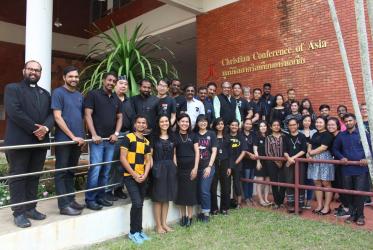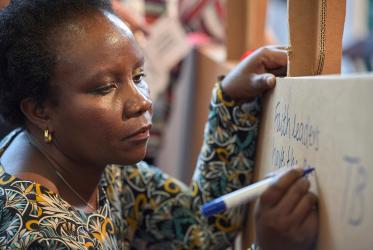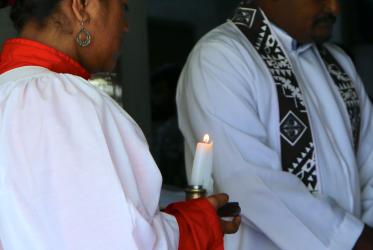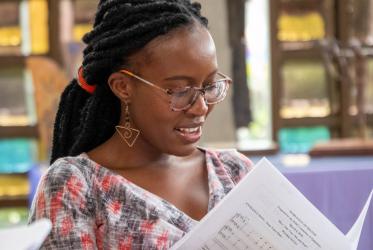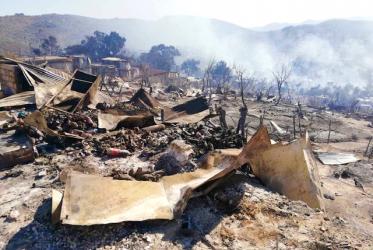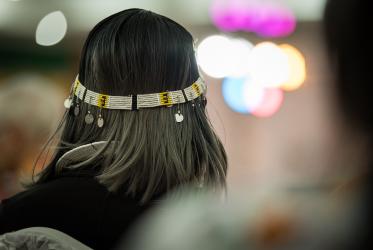Displaying 1 - 20 of 75
28 March 2024
WCC Eco-School for Europe and North America region
11 - 18 November 2023
Orthodox Academy of Crete, Greece
Pandemic and pedagogy: what are the valuable lessons?
21 December 2022
Migrants in Argentina find listening ears and open hearts
04 November 2022
Webinar remembers past massacres in the Pacific
21 October 2021
WCC Eco-School 2021 for Pacific region on Water, Food and Climate Justice
22 - 28 February 2021
WCC honors world’s indigenous communities
07 August 2020




